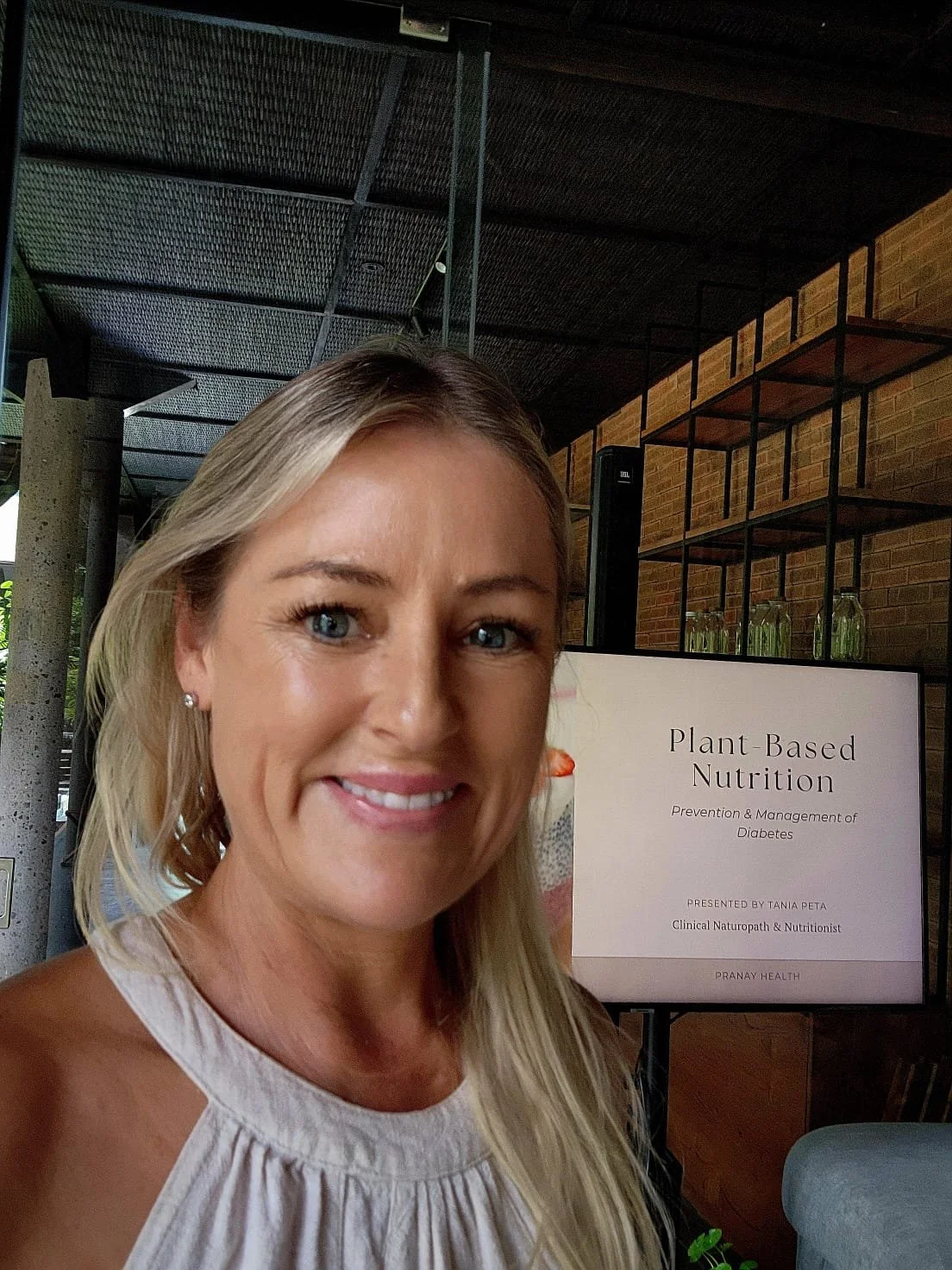How Your Hormones Shape Holiday Appetite and Energy
As the festive season approaches, many people begin to feel their energy, cravings, and mood shift long before the celebrations begin. At my recent wellness talk at Gdas Wellness Resort for World Diabetes Day, I highlighted how subtle hormonal changes influence our appetite, how we handle carbohydrates, and how easily we gain or lose metabolic balance during busy, high-stress periods. Understanding this connection now can help you stay steady and clear-minded through the most tempting part of the year.
This article focuses on the hormones that determine blood sugar control and appetite and provides practical, science-informed strategies you can apply immediately to support stable energy and balanced metabolism.
How Hormones Shape Blood Sugar and Appetite
Blood sugar regulation is influenced by a set of key hormones that determine hunger, satiety, insulin sensitivity, and how efficiently the cells use glucose.
Cortisol
Cortisol rises with stress, sleep disruption, and rushing through the day. High cortisol increases glucose release from the liver and heightens sugar cravings. During the festive season, elevated cortisol amplifies the desire for quick energy foods and reduces metabolic flexibility.
Insulin
Insulin moves glucose into the cells. When cells become less responsive, insulin rises further to compensate. This leads to energy crashes, weight gain, fatigue, and inflammation. Declining oestrogen in perimenopause reduces insulin sensitivity, which is why many women notice stronger cravings or fluctuating energy at this stage.
Leptin
Leptin is the satiety hormone. It signals fullness to the brain. Poor sleep, high stress, and frequent snacking reduce leptin sensitivity and make it harder to feel satisfied after meals.
Ghrelin
Often called the hunger hormone, ghrelin increases before meals and rises further with stress, irregular eating, and inadequate protein intake. It is one of the strongest hormonal drivers of increased appetite in December when structure tends to slip.
CCK
Cholecystokinin (CCK) is released in response to protein and healthy fats. It slows the movement of food through the digestive tract and supports fullness. When meals lack protein or healthy fat, CCK remains low and cravings intensify.
Oestrogen and Progesterone
Oestrogen enhances insulin sensitivity while progesterone supports calm digestion and balanced stress responses. Fluctuations during perimenopause can lead to reactive hypoglycaemia, headaches, irritability, and stronger sugar cravings.
The Gut Microbiome and Metabolic Regulation
Your gut bacteria influence hunger hormones, appetite signals, and glucose metabolism. A low fibre diet shifts the microbiome toward species that promote inflammation and reduce insulin sensitivity. Alcohol, late nights, and irregular meals intensify this effect.
Short-chain fatty acids produced by fibre-fermenting bacteria help stabilise glucose after meals and improve leptin sensitivity. This is one of the fastest ways to support consistent energy during the festive season.
Nutrition and Lifestyle Tips for Balanced Blood Sugar
Below are simple, targeted strategies specifically chosen for hormonal and blood sugar balance during high-stress, high-temptation periods. These are new tools that have not appeared in earlier posts.
1. Food Before Caffeine
Eat breakfast before your first coffee to reduce cortisol spikes and support steadier blood sugar.
4. Increase Morning Protein
A small rise in protein at breakfast improves leptin sensitivity, reduces ghrelin throughout the day, and steadies mood and cravings by mid-afternoon. Aim for 30g of protein per meal.
3. Grounding Breath Before Eating
Take one slow breath in and one long exhale before eating. This lowers cortisol, improves vagal tone, and shifts the body into a state that promotes digestion, which enhances glucose control.
5. Add Resistant Starch to One Meal a Day
Foods such as cooked then cooled potatoes, green banana flour, or overnight oats feed beneficial bacteria that produce short-chain fatty acids, which stabilise blood sugar and support metabolic balance.
6. The Protein First Method
Eat your protein portion before the rest of the meal. This activates CCK early, improves satiety, reduces ghrelin, and flattens the glucose curve significantly.
2. The Ten-Minute Post-Meal Walk
A short walk after meals supports glucose uptake by the muscles, reduces post-meal glucose spikes, and improves insulin sensitivity. This works even after small festive treats.
7. Replace Evening Snack With a Protein-Rich Alternative
If evening grazing becomes a habit, swap one snack for a protein-based choice such as Greek-style coconut yoghurt, hemp seeds, or a boiled egg. This supports CCK release and reduces the late-night glucose bump that disrupts sleep.
8. Eat Within a Twelve-Hour Window on Your Non-Social Days
A gentle eating window supports insulin sensitivity and keeps leptin and ghrelin rhythms regulated without any strict dieting.
Support for your festive season wellbeing
The festive season does not need to disrupt your health goals. With an understanding of how your appetite and blood sugar hormones shift during busy periods, you can move through the coming weeks with stability, clarity, and confidence. These small adjustments assist to protect your energy, mood, and metabolic health while still letting you enjoy the celebrations.
Part 4 of this series arrives next week and explores how emotional stress reshapes eating patterns during the holiday season.
Suppose you are curious to explore your own metabolic balance. You can join my upcoming 28 Day Gut Health Reset or reach out for personalised support to help you stay strong and energised throughout the festive season.





